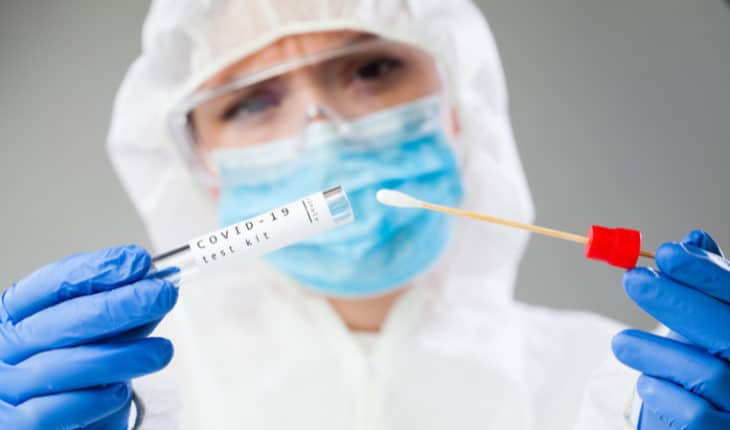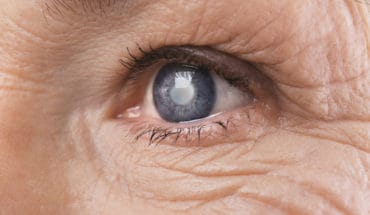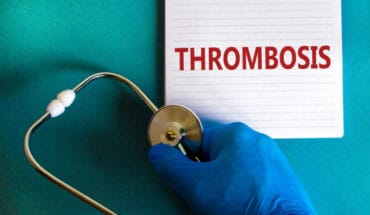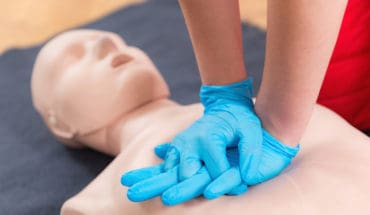High quality staff deliver high quality services: IBMS Council delivers a position statement on the need for accreditation and registered staff in all laboratories doing COVID-19 testing
The national response to the COVID-19 pandemic has required an unprecedented increase in the UK’s capacity to provide timely and accurate testing for the SARS-CoV-2 virus. The Institute of Biomedical Science (IBMS) supports the UK government strategy to control the virus by increasing testing numbers and by implementing the test, track and trace programme.
However, the pace of upscaling testing capacity across the healthcare sector must not lead to a reduction in the quality of the diagnostic testing process. Before we set up more mass testing centres, we must work together to assure the quality of testing and the competence of staff and make sure that current and any future centres will be more closely integrated with National Health Service (NHS) systems.
Established diagnostic testing facilities (i.e. pathology laboratories in the NHS and private healthcare sector) have typically evolved their processes over a number of years and have some of the highest quality testing programmes in the world. This has been achieved through the implementation of robust quality management systems that are proven to provide high quality and safe services through medical laboratory accreditation (e.g. to ISO15189:2012 standards).
As the next phase of increasing testing capacity is undertaken, it is essential that the provision of a high quality and safe testing service is at the centre of the national testing strategy. We should not sacrifice quality for quantity.
Quality matters
It is well known in laboratory medicine that the one thing worse than no result is the wrong result. The IBMS expects that all testing facilities performing COVID-19 PCR and serology testing seek appropriate medical laboratory accreditation as soon as possible. There are now a number of laboratories that have achieved ISO15189 accreditation for their COVID-19 testing processes, and the number pending an assessment to grant this is increasing. Laboratories that have medical laboratory accreditation are kite marked as providers of a high quality and safe service, often for very similar tests to the COVID-19 assays. Prior accreditation provides reassurance that there is minimal risk of poor quality practice while a laboratory awaits accreditation for new tests.
The IBMS recommends that all laboratories achieve accreditation as a mark of quality and assurance for patients.
High quality staff deliver high quality services
Statutory regulation
Due to the complexity of the testing being undertaken to detect the SARS-CoV-2 virus there is a need for a highly skilled and regulated professional workforce. HCPC registration has been mandatory for a wide number of professions within healthcare for many years. The intention of registration is to:
- Protect the public
- Demonstrate skills and knowledge
- Ensure service users are clear on the scope of practice registrants have and behaviors that should be expected
- Provide a requirement for Continual Professional Development (CPD)
- Maintain public confidence in the respective profession
The IBMS expects that any workforce undertaking diagnostic testing for COVID-19 should meet the same minimum requirements as any other medical laboratory workforce that is involved in diagnostic testing.
Non-registered staff
Non-registered staff contribute to the overall sample journey with a variety of roles. Data Entry and communications are performed by non-registered staff following standard operating procedures (SOPs). The level of technical roles non-registered staff perform varies with the level of automation in a laboratory’s process. A significant level of bench work can be performed by trained non-registered staff and that is common in NHS and independent sector environments alike. However, HCPC registered scientists must be available to provide ongoing indirect supervision, and troubleshooting in this work flow model.
The ratio of Registered Scientists and non-registered support should be assessed in each individual situation; it will vary with the level of automation available and the stability of the assay and workflow, but should provide sufficient numbers of Registered Scientists that any supervision is real and not “nominal”.
The IBMS supports the development of non-HCPC registered scientists and support staff. Indirect supervision is a process that works well in medical laboratories and allows for an appropriate skill mix in the workplace. It has been widely accredited and meets ISO15189:2012 requirements if undertaken correctly. However, the IBMS would expect that the supervising HCPC registered scientist is only responsible for a number of unregistered staff that allows them to safely provide adequate supervision.
Scientific staff
The IBMS expects that all scientific staff supervising a laboratory section and/or group of non-registered staff working in the laboratory are HCPC registered as a biomedical scientist or clinical scientist with the appropriate experience and grade commensurate of the role in question.
The IBMS also strongly recommends that HCPC registered scientific staff should be the only staff group to undertake the following roles in the laboratory:
Review and interpretation of anomalous test results
Approval and subsequent technical authorisation of test results
Provide clinical authorisation and interpretation of test results*
Provide sign off for the validation or verification of new technologies, assays or equipment before being brought in to routine use
*also to be provided by the General Medical Council (GMC) registered medical colleagues
Supporting the expertise of our members
The IBMS is proud of the expertise of our members who work at the heart of healthcare in laboratory medicine 24 hours a day, 365 days a year, contributing to over 70% of diagnoses in the NHS processing over a billion samples every year. The biomedical science workforce have continued to go above and beyond to get the UK into a position to deal with this pandemic and are working tirelessly to help get patients and their medical teams the results that they need.
The IBMS and our members want to ensure that all laboratory and rapid testing for COVID-19 is preformed to the highest quality and in the safest manner possible. We would welcome working with any institutions, government bodies or testing organisations to help support these objectives.
To read our statement in full click here
References
https://www.ibms.org/resources/documents/supervision-biomedical-support-staff/
https://www.ibms.org/resources/documents/good-professional-practice-in-biomedical-science/)
https://www.ibms.org/resources/documents/staffing-and-workload/
https://www.ibms.org/resources/documents/quality-management-in-laboratories/
https://www.england.nhs.uk/wp-content/uploads/2014/01/path-qa-review.pdf
https://www.ukas.com/services/accreditation-services/medical-laboratory-accreditation-iso-15189/
With over 19,000 members in 73 countries, the Institute of Biomedical Science (IBMS) is the leading professional body for scientists, support staff and students in the field of biomedical science.
For over 100 years we have been dedicated to the promotion, development and delivery of excellence in biomedical science within all aspects of healthcare, and to providing the highest standards of service to patients and the public.
By supporting our members in their practice we set quality standards for the profession through: training, education, assessments, examinations and continuous professional development. We offer research grants to members to advance biomedical science, supporting their original research into scientific developments.
Our publications and training events ensure our members are kept up to date on the latest scientific developments and news.
Through public relations and marketing campaigns, we raise awareness of the vital role biomedical science plays in healthcare and promote career opportunities in the profession.
- New lipid-based pathway discovered as key to memory formation - 25th June 2025
- Crucial link could explain how Alzheimer’s takes hold - 25th June 2025
- Understanding Your Mind Can Improve Daily Life - 25th June 2025






